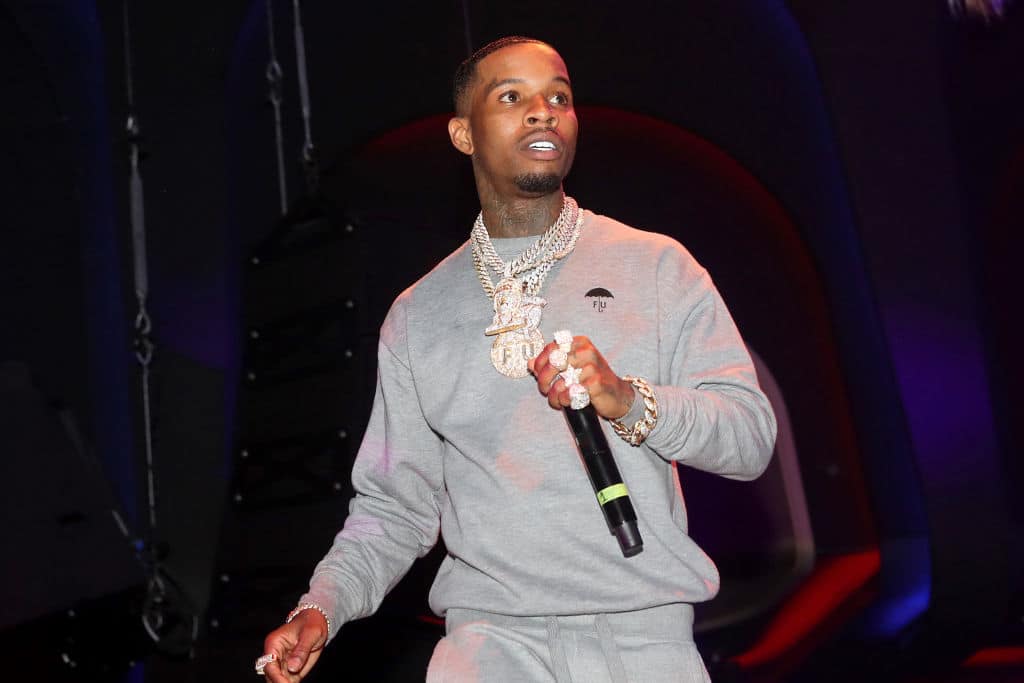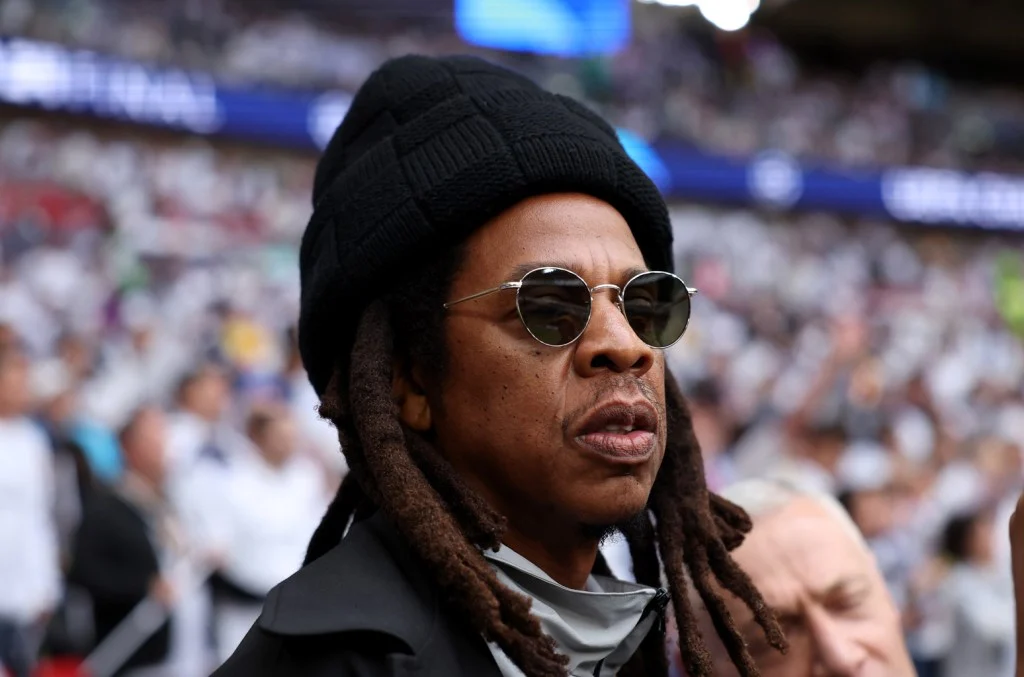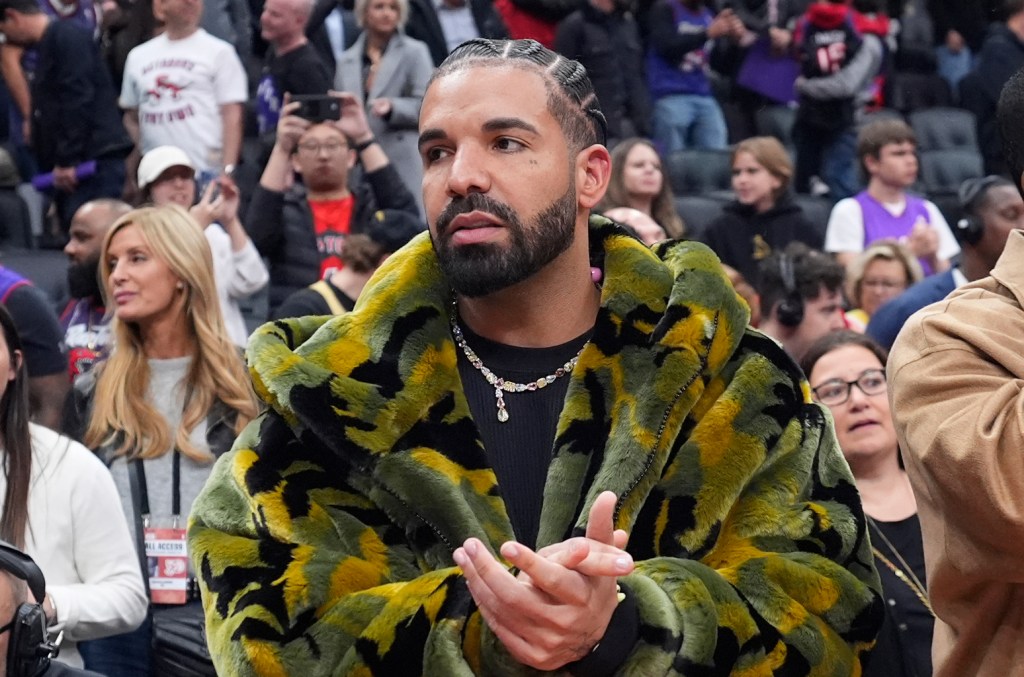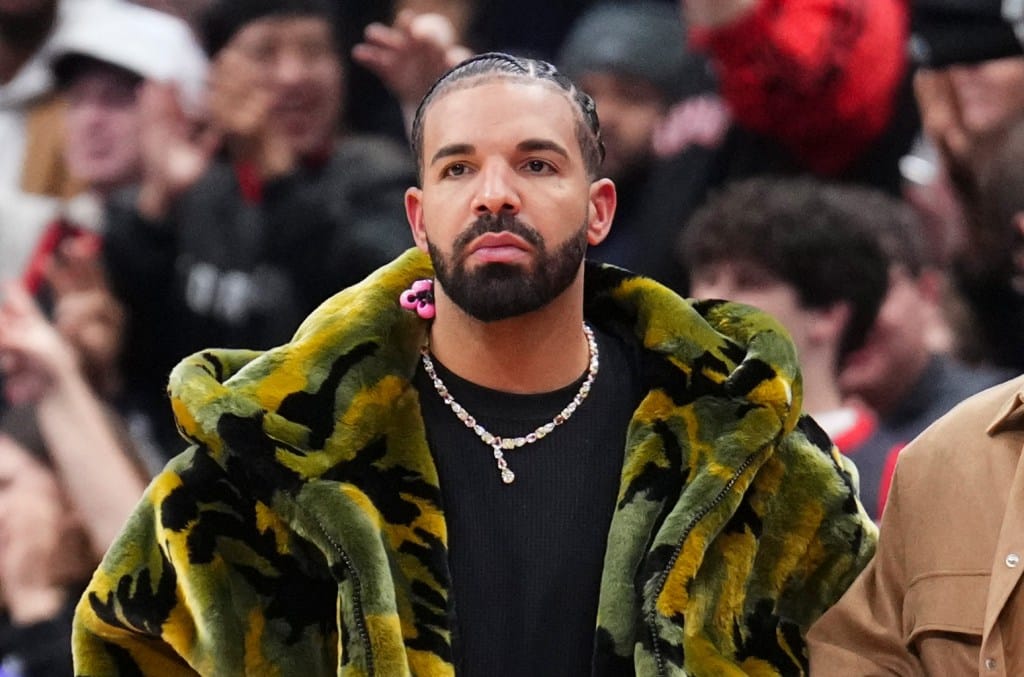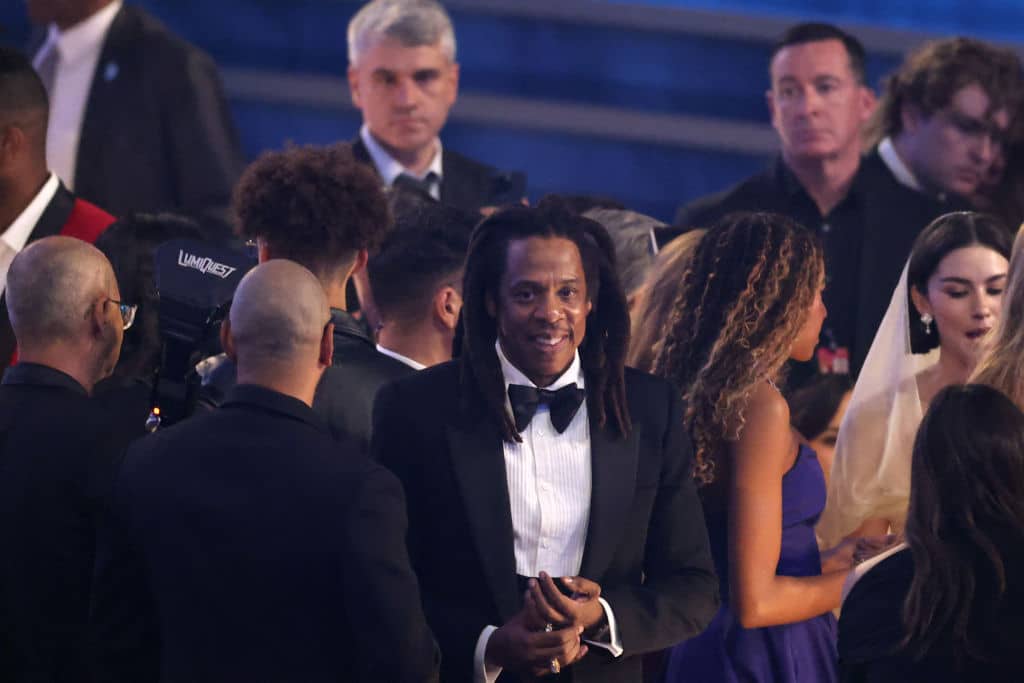Defamation
Tory Lanez was slapped with a $20,000 fine for obstruction in Megan Thee Stallion’s defamation case against blogger Milagro Gramz. According to reports, Tory Lanez and his attorney, Crystal Morgan, were hit with the fine due to “obstruction of Plaintiff’s multiple attempts to depose him.”
In a report from Rolling Stone, Tory Lanez and his refusal to work with Megan Thee Stallion’s legal team has led to the court finding the jailed singer in contempt for not answering their inquiries.
According to the outlet, Lanez reportedly said, “Whatever the fines are, I’ll pay them. I’m a millionaire. I don’t care.”
Megan The Stallion, real name Megan Pete, and Milagro Gramz, real name Milagro Cooper, saw the start of the defamation trial on Monday (November 17). According to Pete, Cooper and Lanez, real name Daystar Peterson, worked with one another to launch a smear campaign against the Houston superstar. Cooper is also charged with creating an AI-generated sex video of Pete and informing her audience that Pete had a drinking problem.
Tory Lanez was sentenced to 10 years behind bars in connection with a shooting incident that left Pete with an injured foot and reported emotional distress in the wake of the violent moment.
—
Photo: Getty
Trending on Billboard
THE BIG NEWS: Universal Music Group and artificial intelligence music service Udio reached a landmark agreement last week to end their lawsuit – the first major settlement in the battle over the future of AI music. Here’s everything you need to know.
The deal, announced Wednesday, will end UMG’s allegations that Udio broke the law by training its AI models on vast troves of copyrighted songs — an accusation made in dozens of other lawsuits filed against booming AI firms by book authors, news outlets, movie studios and visual artists. The agreement involves both a “compensatory” settlement for past sins and an ongoing partnership for a new, more limited subscription AI service that pays fees to UMG and its artists.
Related
-The agreement is much more than a legal settlement, Udio CEO Andrew Sanchez told Billboard’s Kristin Robinson in a detailed question-and-answer session just hours after the news broke: “We’re making a new market here, which we think is an enormous one.”
-The deal between UMG and Udio will resolve their legal battle, but broader litigation involving rival AI firm Suno and both Sony Music and Warner Music is still very much pending. Are more settlements coming? Does the deal impact the case? Go read my look-ahead analysis of the ongoing court battle.
-Will AI do more harm than good for the music business? That’s the question Billboard’s Glenn Peoples is asking – and financial analysts don’t have a clear answer. Some believe AI’s negatives outweigh its positives, while others see mostly upside. Maybe it’s just too early to know, Glenn says: “In the near term, expect more deals like UMG’s partnership with Udio. Over the long term, expect to be surprised.”
-Artist advocates are already demanding answers about how exactly this whole thing will work. According to the Music Artists Coalition, talk of “partnership” and “consent” are all well and good, but details are what matter: “We have to make sure it doesn’t come at the expense of the people who actually create the music,” MAC founder Irving Azoff said.
Related
-To put it lightly, Udio subscribers were not big fans of the settlement, which saw the company immediately disable downloads – even for songs that users created long before the deal was reached. After two days of outrage and threats of legal action, Udio said it would open a 48-hour window for users to download their songs. But with wholesale changes to the platform coming soon, will that be enough to satisfy them?
You’re reading The Legal Beat, a weekly newsletter about music law from Billboard Pro, offering you a one-stop cheat sheet of big new cases, important rulings and all the fun stuff in between. To get the newsletter in your inbox every Tuesday, go subscribe here.
Other top stories this week…
AINT OVER YET – Drake is now formally appealing last month’s court ruling that dismissed his defamation lawsuit against Universal Music Group (UMG) over Kendrick Lamar’s diss track “Not Like Us,” prolonging a messy legal drama that has captivated the music industry and, at times, drawn ridicule in the hip-hop world.
DIDDY APPEAL – Sean “Diddy” Combs is appealing too – and he’ll get a fast-track process to do it. With such cases sometimes lasting years, his lawyers argued that he could be nearly finished with his three-ish year prison sentence by the time an appellate court rules on his prostitution convictions.
Related
POT SHOTS – Offset is facing a new civil assault lawsuit claiming he punched a security guard in the face at a cannabis dispensary in Los Angeles after being asked to show his I.D., sending the staffer to the emergency room.
MASSIVE FINE – Fugees rapper Pras Michel must forfeit a whopping $64 million to the government following his conviction on illegal foreign lobbying and conspiracy charges, a federal judge says, overruling his protests that it’s “grossly disproportionate.”
DRAKE SUED – Drake and internet personality Adin Ross are facing a class action accusing them of using “deceptive, fraudulent and unfair” practices to promote online sweepstake casino Stake and “encourage impressionable users to gamble,” including using house money to do it.
DRAKE NOT SUED – Another class action, this one against Spotify, claims that the platform has turned a “blind eye” to streaming fraud and allowed billions of fake plays. It alleges that Drake is one of the most-boosted artists, but the rapper is not named as a defendant nor accused of wrongdoing.
Related
FAIR TRADE? Cam’ron is suing J. Cole over allegations he reneged on a deal to swap featured credits – claiming he provided a verse for Cole’s “Ready ’24” but that Cole repeatedly declined to do the same, or even appear on Killa Cam’s podcast.
CUSTODY TRUCE – Halle Bailey and DDG temporarily agreed to share custody of their son and drop domestic violence claims against each other, putting a halt to the musicians’ messy legal battle after months of back and forth.
NEWJEANS, SAME LABEL – A Korean court issued a ruling rejecting NewJeans’ attempt to break away from its label ADOR, dealing a major victory to the HYBE subsidiary in its closely-watched legal battle with the chart-topping K-pop group.
DEPOSITION DRAMA – A judge says Tory Lanez must sit for a deposition in litigation stemming from his alleged shooting of Megan Thee Stallion in 2020. The case was filed by Megan against gossip blogger Milagro Gramz, who she claims spread falsehoods about the shooting.
NOT VERY CASH MONEY – Former Hot Boys member Turk is being sued by a concert promoter over online threats that supposedly threatened to derail a Cash Money Records reunion tour featuring Birdman and Juvenile
UGLY DIVORCE – Sia and her estranged husband are fighting over custody of their child amid divorce proceedings — and the crossfire is getting ugly. Among other claims, he says the pop star is a drug addict who can’t care for a baby, and she says he was investigated over child pornography.
Trending on Billboard
It ain’t over yet: Drake has formally launched his appeal of a court ruling that dismissed his defamation lawsuit against Universal Music Group (UMG) over Kendrick Lamar’s diss track “Not Like Us.”
The move on Wednesday is the first step aimed at reversing that ruling, in which a federal judge ruled earlier this month that Drake could not sue over Kendrick’s lyrics that called him a “certified pedophile.” The star’s lawyers, who say millions of fans took that claim literally, had already vowed to appeal the decision.
Related
It could take well over a year for the appeals court to rule on Drake’s case, prolonging a messy legal drama that has captivated the music industry and, at times, drawn ridicule in the hip-hop world. If the appeals court sides with Drake, it could mean years more litigation after that.
In his new court filing, Drake formally stated his intention to appeal, but did not include any detailed arguments on how he will do so. Such arguments are made in later briefs at the appeals court, where lawyers for both sides will eventually make their case.
A rep for Drake told Billboard on Wednesday: “This confirms our intent to appeal, and we look forward to the Court of Appeals reviewing that filing in the coming weeks.” A spokesman for UMG did not immediately return a request for comment.
Lamar released “Not Like Us” in May 2024 amid a war of words with Drake that saw the two UMG stars release a series of bruising diss tracks. The song, a knockout punch that blasted Drake as a “certified pedophile” over an infectious beat, became a chart-topping hit in its own right and won five Grammy Awards, including record and song of the year.
In January, Drake took UMG to court over the song, claiming his own label had defamed him by boosting its popularity. The lawsuit, which didn’t name Lamar himself as a defendant, alleged that UMG “waged a campaign” against its own artist to spread a “malicious narrative” about pedophilia that it knew to be false.
Related
Those claims stunned the music industry. Few expected a rapper to respond to a diss track with a lawsuit — a move that drew hackles in the hip-hop world and condemnation from legal scholars. Fewer still expected him to file it against UMG, his longtime record label and the biggest music company in the world.
Just 10 months after Drake filed it, Judge Jeannette Vargas dismissed the case. She said Kendrick’s insulting lyrics were the kind of “hyperbole” that cannot be defamatory because listeners would not think they were statements of fact. She said fans didn’t expect to hear “accurate factual reporting” from a a diss track “replete with profanity, trash-talking, threats of violence, and figurative and hyperbolic language.”
“The artists’ seven-track rap battle was a ‘war of words’ that was the subject of substantial media scrutiny and online discourse,” the judge wrote. “Although the accusation that plaintiff is a pedophile is certainly a serious one, the broader context of a heated rap battle, with incendiary language and offensive accusations hurled by both participants, would not incline the reasonable listener to believe that ‘Not Like Us’ imparts verifiable facts about plaintiff.”
Source: Supreme / Supreme
Supreme will have to defend their name and authenticity to skate culture in a court of law. Tyshawn Jones is suing the brand for $26 million dollars in a defamation lawsuit.
As per High Snobiety, the pro skater alleges that the popular streetwear label wrongfully terminated his endorsement contract and more. On Monday (May 12), he filed a 41-page claim with the Manhattan Supreme Court. The documentation says that he had been a paid brand ambassador since the age of 11. His contract was abruptly ended in September 2024 because he posed for a Marc Jacobs photoshoot in August 2024. Jones says that not only was he “transparent and open” about his other modeling gigs but that Supreme leadership “did not express any objections” to him lending his likeness to other brands.
Additionally, the skate legend also says Supreme hurt his good name after they severed ties with him. “Doubling down on their bad faith and willful breach Supreme, through several statements both impermissible and false, has widely disparaged Tyshawn as a liability, a risk — someone no brand would want to affiliate or work with,” the filing reads. In an exclusive interview with the New York Post, Jones further detailed his reasons for the lawsuit. “I am saddened it has come to this, but I have a duty to myself and my career, and feel a responsibility to the next generation of skateboarders to stand up for what is right. Supreme’s success has been shaped in large part by the contributions of young talent, and I believe those contributions deserve to be respected.”
Supreme has yet to formally comment on the matter.
HipHopWired Featured Video
Jay-Z’s rape accuser wants a federal judge to dismiss his defamation lawsuit against her, arguing she cannot be sued over allegations she made in court – and that a headline-grabbing NBC News interview is protected under the same legal logic.
In a court motion filed Tuesday, attorneys for the Jane Doe accuser and her attorney, Tony Buzbee, argued that her shocking accusations against the rapper were covered by the “fair report privilege” – a legal doctrine that largely bars defamation cases over allegations made during legal proceedings.
Jay-Z’s lawsuit – filed in March after Doe dropped her case against him – claims that she also defamed him by making similar allegations during an interview with NBC News. But in her new motion, she says those statements are also covered by the “fair report” protections.
Trending on Billboard
“The average person watching the report, and indeed anyone watching the report, would certainly understand that the statements refer to allegations in the lawsuit,” her lawyers write.
The case against Jay-Z, filed in December, claimed that he and Sean “Diddy” Combs had drugged and raped a 13-year-old girl at an after-party following the 2000 MTV Video Music Awards. Jay-Z forcefully denied the allegations, calling them a “blackmail attempt.” After just two months of heated litigation, Doe dropped her case without a settlement payment.
Weeks after the case was dropped, Jay-Z sued both Doe and Buzbee for defamation, malicious prosecution and other wrongdoing, claiming they had carried out an “evil conspiracy” to extort a settlement from him by making the “false and malicious” rape allegations.
“Mr. Carter does not commence this action lightly,” his lawyers wrote in the lawsuit, filed in Alabama federal court. “But the extortion and abuse of Mr. Carter by Doe and her lawyers must stop.”
In Tuesday’s motion to dismiss that case, attorneys for Doe and Buzbee argued that they cannot be sued because they had made such statements in court. And they said the “fair report” privilege also clearly applies to the NBC interview, even if Doe gave statements that weren’t exactly the same as the claims she had raised in court.
“It is immaterial that the NBC News piece does not preface every statement with a reference to Doe’s amended complaint,” her lawyers write. “Doe’s statements in the NBC News piece are substantially the same as the allegations of her underlying amended complaint, even if they are not identical.”
Attorneys for Doe and Buzbee also argued that the other claims in Jay-Z’s case are similarly faulty, saying he has not “come close” to showing that he can sue for malicious prosecution. A representative for Jay-Z did not immediately return a request for comment.
The Alabama lawsuit is part of a sprawling legal battle between Jay-Z and Buzbee in the wake of the rape allegation. A separate case in California, in which Jay-Z is suing the lawyer for extortion and defamation, is awaiting an early-stage ruling by a judge. Buzbee has also filed his own cases against both Jay-Z’s Roc Nation and his longtime law firm, Quinn Emanuel, alleging they have harassed his clients and committed other wrongdoing.
Drake has filed an updated version of his defamation lawsuit against Universal Music Group over Kendrick Lamar’s “Not Like Us,” claiming the rival’s Super Bowl halftime show was intended to “assassinate the character of another artist.”
In an amended complaint filed late Wednesday, Drake’s attorneys say the Super Bowl show, watched by 133 million people and “million of children”, “revitalized the public’s attention” to lyrics calling Drake a “certified pedophile” – a diss that the Canadian superstar claims is false and defamatory.
“It was the first, and will hopefully be the last, Super Bowl halftime show orchestrated to assassinate the character of another artist,” writes Drake’s lawyer Michael Gottlieb.
Trending on Billboard
During the halftime show, which took place weeks after Drake had already sued UMG over “Not Like Us,” Lamar omitted the word “pedophile.” But after much speculation over whether he’d play the song at all, Kendrick really didn’t hold back otherwise – making it the centerpiece of the set and clearly rapping similar lyrics, including: “Say, Drake, I hear you like ’em young.”
In Wednesday’s updated lawsuit, Drake’s lawyers say the decision to censor the word “pedophile” during the broadcast failed to avoid the song’s defamatory meaning – and instead had underscored the rapper’s legal case against UMG.
“Kendrick Lamar would not have been permitted to perform during the Super Bowl Performance unless the word ‘pedophile’… was omitted from the lyrics — that is because nearly everyone understands that it is defamatory to falsely brand someone a ‘certified pedophile’,” Gottlieb wrote in the new complaint. “The NFL, as well as the corporate entities responsible for the televised and streaming broadcasts of the Super Bowl Performance, all understood the words “certified pedophile” to be unacceptable in a broadcast to millions of listeners.”
Though it added new claims, the amended complaint also softened certain accusations against UMG, like the lawsuit’s claim that the label used bots to boost the song’s streaming numbers. Drake’s lawyers removed specific allegations about a “whistleblower” and potentially “indirectly” orchestrated such a campaign: “At minimum, UMG was aware that third parties were using bots to stream the Recording and turned a blind eye, despite having the power to stop such behavior.”
In a statement to Billboard on Thursday, UMG blasted Drake and his lawyers over the latest filing, calling the case “frivolous and reckless” and saying that changes were made to the lawsuit because Drake’s team was “fearful of being sanctioned for asserting false allegations.”
“Drake, unquestionably one of the world’s most accomplished artists and with whom we’ve enjoyed at 16-year successful relationship, is being misled by his legal representatives into taking one absurd legal step after another,” UMG wrote. “Should his legal representatives senselessly keep the New York lawsuit alive, we will demonstrate that all remaining claims are without merit. It is shameful that these foolish and frivolous legal theatrics continue. They are reputationally and financially costly to Drake and have no chance of success.”
Lamar released “Not Like Us” last May amid a high-profile beef with Drake that saw the two UMG stars release a series of bruising diss tracks. The song, a knockout punch that blasted Drake as a “certified pedophile” over an infectious beat, eventually became a chart-topping hit in its own right.
In January, Drake took the unusual step of suing UMG over the song, claiming his own label had defamed him by boosting the track’s popularity. The lawsuit, which doesn’t name Lamar himself as a defendant, alleges that UMG “waged a campaign” against its own artist to spread a “malicious narrative” about pedophilia that it knew to be false.
UMG has already filed a scathing motion seeking to dismiss the case last month, arguing not only that it was “meritless” but also ridiculing Drake for suing in the first place. That motion will be refiled following the filing of Wednesday’s updated lawsuit.
In one of the case’s earliest skirmishes, Judge Jeannette A. Vargas ruled earlier this month that discovery could move ahead in the case, denying UMG’s request to halt document production and depositions until after she decides whether to dismiss the case entirely. Drake’s attorneys had already sought swathes of evidence, including Lamar’s recording contract.
Drake’s lawyers billed that decision as a major win at the time, allowing them to “see what UMG was so desperately trying to hide.” But on Thursday, UMG warned that the ruling would cut both ways: “That ‘win’ will become a loss if this frivolous and reckless lawsuit is not dropped in its entirety because Drake will personally be subject to discovery as well,” the company wrote. “As the old saying goes, ‘be careful what you wish for.’”
In their own statement Thursday, Drake’s legal team said the amended complaint “makes an already strong case stronger” than it was before: “UMG’s PR ‘spin’ and failed efforts to avoid discovery cannot suppress the facts and the truth,” Gottlieb said. “With discovery now moving forward, Drake will expose the evidence of UMG’s misconduct, and UMG will be held accountable for the consequences of its ill-conceived decisions.”
Universal Music Group is asking a federal judge to halt all discovery in Drake’s defamation lawsuit over Kendrick Lamar’s diss track “Not Like Us,” arguing that the star is unfairly demanding “highly commercially sensitive documents” – including Lamar’s record deal.
A day after moving to dismiss the lawsuit, UMG followed up Tuesday by asking the judge to pause discovery until he rules on that motion. That ruling is likely to end the entire case, UMG argued, and the label should not face costly demands for documents that will ultimately “be rendered moot.”
Such a delay is particularly necessary, UMG said, because Drake’s lawyers are already demanding “broad discovery” requests that impose an “undue burden” on the company. Those asks have allegedly ranged from Interscope boss John Janick’s pay structure to Lamar’s record deal.
Trending on Billboard
“Drake’s requests…seek production of confidential, proprietary, and highly commercially sensitive documents — including all contracts between UMG and Kendrick Lamar,” the label writes. “Proceeding with discovery while the motion is pending would waste the parties’ resources and would constitute an undue burden on defendant.”
In a statement Wednesday, Drake’s attorney Michael J. Gottlieb said it was “unsurprising” that UMG was “desperate” to avoid handing over evidence: “This motion is a ploy to delay producing documents and communications that UMG hopes to keep hidden and buried. If UMG has nothing to hide, it should not have an issue with discovery.”
UMG did not immediately return a request for comment.
Lamar released “Not Like Us” last May amid a high-profile beef with Drake that saw the two stars drop a series of bruising diss tracks. The song, a knockout punch that blasted Drake as a “certified pedophile” over an infectious beat, eventually became a chart-topping hit in its own right and was the centerpiece of Lamar’s Super Bowl halftime show.
In January, Drake took the unusual step of suing UMG over the song, claiming the label had defamed him by boosting the track’s popularity. The lawsuit, which doesn’t name Lamar himself as a defendant, alleges that UMG “waged a campaign” against its own artist to spread a “malicious narrative” about pedophilia that it knew to be false.
UMG moved to dismiss the case on Monday, arguing not only that Drake’s allegations against the company were clearly “meritless,” but that the star filed his case simply because he had been publicly embarrassed: “Instead of accepting the loss like the unbothered rap artist he often claims to be, he has sued his own record label in a misguided attempt to salve his wounds.”
In Tuesday’s filing, UMG argued that it was highly likely to succeed on those claims. And it warned that the daunting cost of defending against meritless defamation cases can be abused by those that want to squelch free speech.
“Critically, courts in this District have emphasized that defamation defendants must be protected from unnecessary discovery to safeguard First Amendment protections,” the company’s lawyers write. “A stay is therefore particularly warranted here given the untenability of Drake’s defamation claim and the First Amendment rights at issue.”
The two sides have already sparred over discovery once before. In a court filing last month, Drake’s lawyers said UMG was unfairly seeking to delay the case as their client continued to be defamed — and they cited Lamar’s halftime show as evidence of such ongoing harm. A judge eventually sided with Drake over that procedural issue, setting the stage for UMG’s motion on Tuesday.
Universal Music Group has filed a scathing first court response to Drake’s defamation lawsuit over Kendrick Lamar’s diss track “Not Like Us,” blasting the case as “no more than Drake’s attempt to save face” after losing a rap beef.
In a motion filed Monday (March 17) seeking to dismiss the lawsuit, attorneys for the music giant argued that Drake’s allegations against the company were clearly “meritless” — and that he had gone to court simply because he had been publicly embarrassed.
“Plaintiff, one of the most successful recording artists of all time, lost a rap battle that he provoked and in which he willingly participated,” UMG’s lawyers write. “Instead of accepting the loss like the unbothered rap artist he often claims to be, he has sued his own record label in a misguided attempt to salve his wounds.”
Trending on Billboard
In the filing, UMG pointedly noted that Drake himself had leveled his own “hyperbolic insults” and “vitriolic allegations” during the same exchange of stinging rap tracks, including accusing Lamar of domestic abuse and questioning whether the rival had really fathered his son.
“Drake has been pleased to use UMG’s platform to promote tracks leveling similarly incendiary attacks at Lamar,” the company’s attorneys write. “But now, after losing the rap battle, Drake claims that ‘Not Like Us’ is defamatory. It is not.”
In a statement to Billboard on Monday, Drake’s attorney Michael J. Gottlieb responded to the new filing. “UMG wants to pretend that this is about a rap battle in order to distract its shareholders, artists and the public from a simple truth: a greedy company is finally being held responsible for profiting from dangerous misinformation that has already resulted in multiple acts of violence,” Gottlieb said. “This motion is a desperate ploy by UMG to avoid accountability, but we have every confidence that this case will proceed and continue to uncover UMG’s long history of endangering, abusing and taking advantage of its artists.”
Lamar released “Not Like Us” last May amid a high-profile beef with Drake that saw the two stars release a series of bruising diss tracks. The song, a knockout punch that blasted Drake as a “certified pedophile” over an infectious beat, eventually became a chart-topping hit in its own right and was the centerpiece of Lamar’s Super Bowl halftime show.
In January, Drake took the unusual step of suing UMG over the song, claiming the label had defamed him by boosting the track’s popularity. The lawsuit, which doesn’t name Lamar himself as a defendant, alleges that UMG “waged a campaign” against its own artist to spread a “malicious narrative” about pedophilia that it knew to be false.
But in Monday’s response, UMG says the lyrics to Lamar’s song are clearly the kind of free speech that are shielded from defamation lawsuits by the First Amendment. The song contains over-the-top insults, the company argued, but so do all such tracks, including those by Drake.
“Diss tracks are a popular and celebrated artform centered around outrageous insults, and they would be severely chilled if Drake’s suit were permitted to proceed,” the company wrote. “Hyperbolic and metaphorical language is par for the course in diss tracks — indeed, Drake’s own diss tracks employed imagery at least as violent.”
In technical terms, UMG is arguing that Lamar’s lyrics are either “rhetorical hyperbole” or opinion — the kind of statements that might sound bad but cannot actually be proven false. Since defamation only covers false assertions of fact, statements of hyperbole and opinion can’t form the basis for such lawsuits.
To make that point, UMG cites Drake’s own public support for a 2022 petition criticizing prosecutors for using rap lyrics as evidence in criminal cases. That letter, also signed by Megan Thee Stallion, 21 Savage and many other stars, criticized prosecutors for treating lyrics as literal statements of fact.
“As Drake recognized, when it comes to rap, ‘the final work is a product of the artist’s vision and imagination’,” UMG’s lawyers write. “Drake was right then and is wrong now. The complaint’s unjustified claims against UMG are no more than Drake’s attempt to save face for his unsuccessful rap battle with Lamar. The court should grant UMG’s motion and dismiss the complaint with prejudice.”
Drake’s attorneys will file a court response to UMG’s motion in the weeks ahead, and the judge will rule on the motion at some point in the next few months. If denied, the case will move ahead into discovery and toward an eventual trial.
HipHopWired Featured Video
Source: Amy Sussman / Getty
Tony Buzbee might need his own legal counsel. A judge is seemingly in favor of Jay-Z’s defamation case against the lawyer going to trial.
As reported by Rolling Stone, Judge Mark H. Epstein has given the Roc Nation CEO an informal nod of approval with his claims that Tony Buzbee was intentionally trying to defame his character. On Tuesday (Feb. 25), the magistrate held a hearing where he explained there is validity to Jay-Z’s concern and questioned if Tony Buzbee proceeded with the lawsuit ethically. He pointed out that the lawyer said he would not reveal the names of the defendants in the now dismissed sexual assault case until a formal investigation was completed. But in a social media post a user speculated that the John Doe was Jay-Z to which Buzbee liked the comment.
“When someone says Doe is Carter, and [Buzbee] ‘likes’ it, it’s not unreasonable to infer that [Buzbee] has just affirmed that he’s right, that Doe is Carter,” Epstein said. “Not having done the investigation we’d all like one to do is not going to be enough to show actual malice, I know that. The concern I have is juxtaposing that with Mr. Buzbee’s statements that he was not going to bring a lawsuit until he had done a full investigation,” Epstein said. “I agree this is the hardest question of the case, the ‘actual malice’ question.”
The judge would go on to question how Tony Buzbee proceeded with this high-profile filing. “If you say, ‘I’m not going to name names until I’ve done real investigating,’ and then you name a name, isn’t the implication that you did conduct a real investigation? And if you didn’t, is it okay? Is actual malice still not satisfied when I’m telling the public, ‘I did a real investigation and this guy engaged in child rape,’ and actually, I didn’t?”
Judge Mark H. Epstein did not seem in favor of granting Jay-Z the green light to move forward with his extortion lawsuit against Tony Buzbee, but the next hearing on this case is scheduled for March 26.
Megan Thee Stallion can proceed with a defamation lawsuit accusing social media personality Milagro Gramz of waging a “campaign of harassment” against the star on behalf of Tory Lanez, a federal judge says.
The rapper sued Gramz (Milagro Cooper) last year, claiming the YouTuber had been “churning out falsehoods” about the high-profile criminal case against Lanez, in which he was convicted of shooting Megan in the foot during a 2020 dispute in the Hollywood Hills.
In a 25-page decision on Friday (Feb. 7), Judge Cecilia Altonaga denied a request by Gramz to dismiss the case, saying Megan had made a “compelling case” that the blogger had defamed her by claiming the star lied during Lanez’s trial and that she was “mentally retarded.”
“Plaintiff’s claims extend far beyond mere negligence — they paint a picture of an intentional campaign to destroy her reputation,” the judge wrote. “That is more than enough to [deny the motion to dismiss].”
The judge also refused to dismiss Megan’s other claims against Gramz, including that Gramz had violated a Florida state law by sharing a pornographic “deepfake” of the rapper. Defense attorneys had argued that Gramz had not actually shared the clip merely by “liking” it on X, but Judge Altonaga noted Friday that she’d allegedly done more than that.
“By ‘liking’ an X.com post that featured the deepfake video, the video was exhibited on defendant’s X.com account’s ‘Likes’ page,” the judge wrote. “Defendant also brought the video ‘before the public’ when she allegedly directed viewers of her post to click on her ‘Likes’ page where the video had been archived.”
The judge did dismiss one claim — Megan’s accusation of cyberstalking — but allowed her to refile the case this month to try to fix the error.
In a statement to Billboard, Gramz’s attorney Michael A. Pancier stressed that the decision was an early-stage ruling subject only to a “more lenient legal standard” and that “many of these issues will be revisited at a later stage following the completion of the discovery process.”
“This decision does not reflect a determination on the merits of the case,” Pancier said. “The plaintiff must now substantiate her claims with credible and admissible evidence.”
A rep for Megan declined to comment on the ruling.
Lanez (Daystar Peterson) was convicted in December 2022 on three felony counts over the violent 2020 incident, in which he shot at the feet of Megan during an argument following a pool party at Kylie Jenner’s house in the Hollywood Hills. In August 2023, he was sentenced to 10 years in prison. He has filed an appeal, which remains pending.
In an October lawsuit, Megan’s attorneys accused Gramz of repeatedly spreading falsehoods about that criminal case, including questioning whether Megan was even shot and claiming she was “caught trying to deceive the courts.” More recently, they said Gramz had pushed the “outlandish claim” that the gun Lanez used in the shooting had gone missing from evidence.
The lawsuit claimed the blogger made those claims because she was serving as a “mouthpiece and puppet” for Lanez as the singer sat behind bars. In an updated version of the lawsuit filed in December, Megan’s attorneys said prison call logs suggested that Lanez and his father had arranged to pay Gramz.
In seeking to dismiss the case, defense attorneys argued that Megan could not meet the difficult requirement of showing that Gramz had acted with “actual malice” — that she had either intentionally lied about Megan or had acted with a reckless disregard for the truth.
But in Friday’s ruling, Judge Altonaga said that the rapper’s claims, if later proven with evidence, would likely be enough to win a defamation case.
“The [lawsuit] makes a compelling case that defendant acted with reckless disregard for the truth,” the judge wrote. “Plaintiff asserts that readily available information contradicted defendant’s statements at the time of publication [and that] defendant knowingly spread these falsehoods at Peterson’s direction, fully aware they were fabricated to harm plaintiff.”
“Finally, defendant seemingly profited from the defamation — gaining a larger social media following, online notoriety, and lucrative sponsorship opportunities,” the judge added.

 State Champ Radio
State Champ Radio 